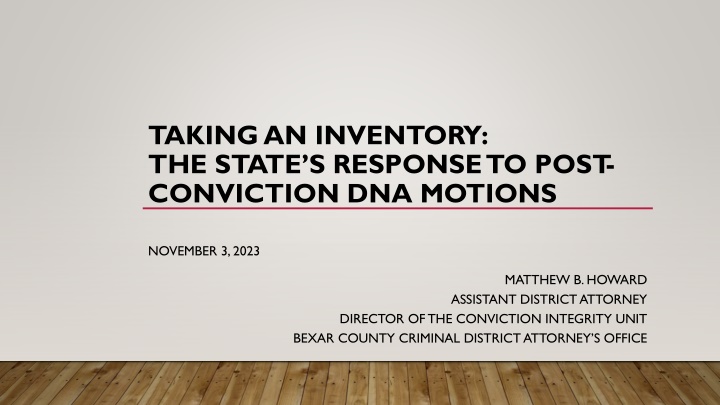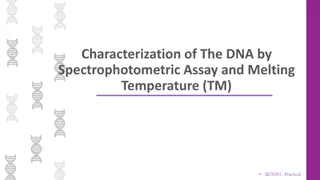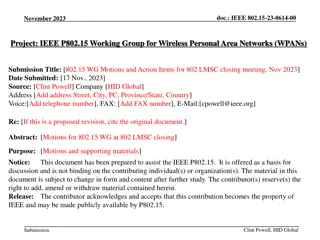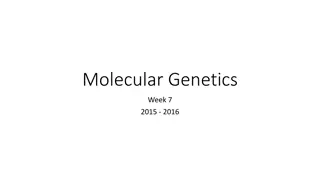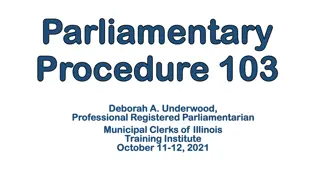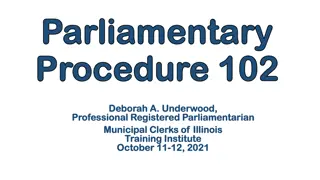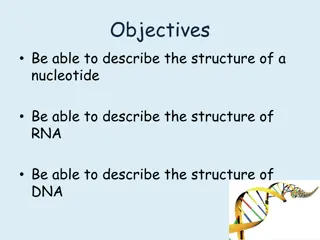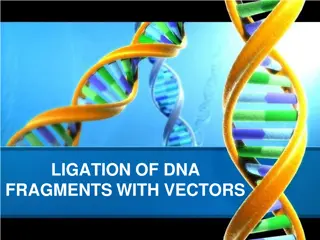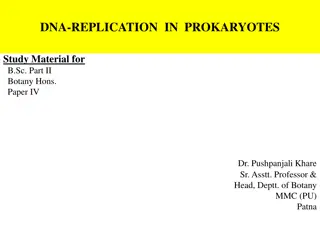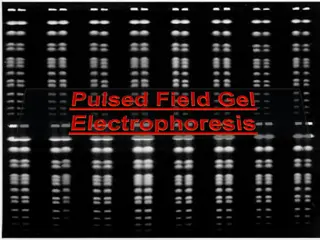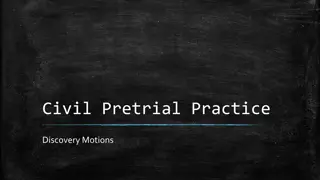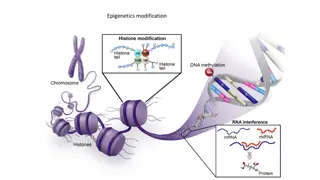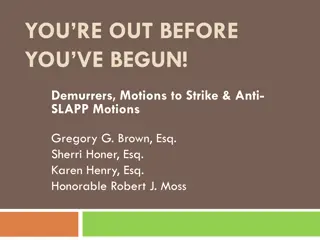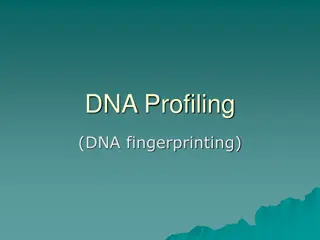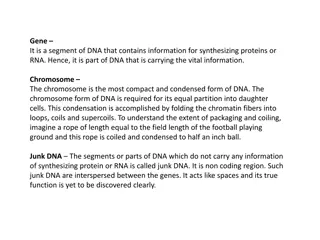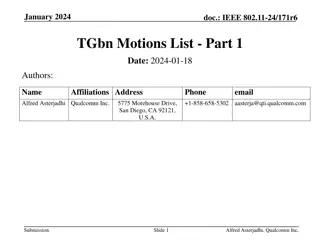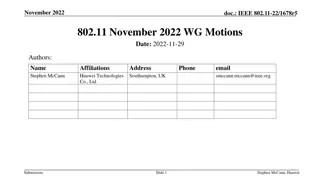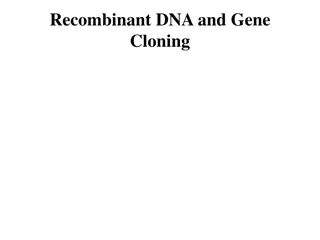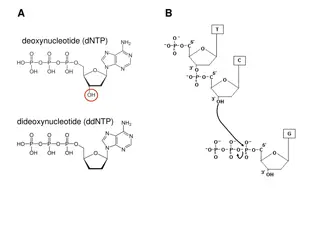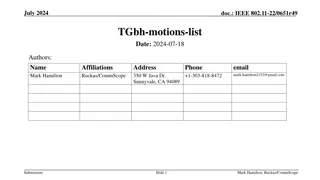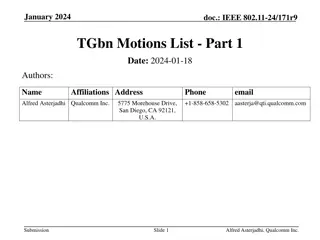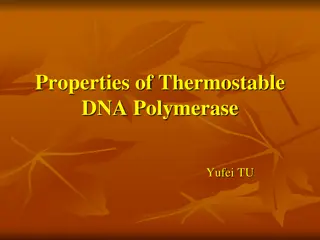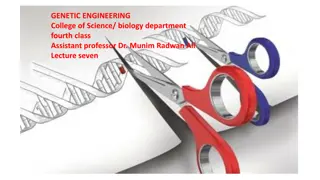State's Response to Post-Conviction DNA Motions Overview
This inventory showcases the State's response to post-conviction DNA motions, detailing requirements for testing, findings, hearings, and appeals. It covers key aspects such as motions, inventory, statutory preconditions for testing, State's possession of evidence, and notice and response procedures according to Texas Criminal Procedure Code. The focus is on the State's obligations, providing a comprehensive snapshot of the legal processes involved.
Download Presentation

Please find below an Image/Link to download the presentation.
The content on the website is provided AS IS for your information and personal use only. It may not be sold, licensed, or shared on other websites without obtaining consent from the author.If you encounter any issues during the download, it is possible that the publisher has removed the file from their server.
You are allowed to download the files provided on this website for personal or commercial use, subject to the condition that they are used lawfully. All files are the property of their respective owners.
The content on the website is provided AS IS for your information and personal use only. It may not be sold, licensed, or shared on other websites without obtaining consent from the author.
E N D
Presentation Transcript
TAKING AN INVENTORY: THE STATE S RESPONSE TO POST - CONVICTION DNA MOTIONS NOVEMBER 3, 2023 MATTHEW B. HOWARD ASSISTANT DISTRICT ATTORNEY DIRECTOR OF THE CONVICTION INTEGRITY UNIT BEXAR COUNTY CRIMINAL DISTRICT ATTORNEY S OFFICE
QUICK OVERVIEW: 1. MOTIONS 2. INVENTORY 3. REQUIREMENTS FOR TESTING 4. FINDING AND HEARING 5. APPEALS
QUICK OVERVIEW: We are going to be moving FAST This is a snapshot of the paper This focuses on the State s obligation, but the paper tries to cover every angle
TEX. CODE CRIM. PRO. ART. 64.01 MOTION The convicting court may order testing only if the statutory preconditions are met. Affidavit Biological material Possession of the State The evidence not previously tested or although previously tested, can be tested with newer techniques that would provide more accurate and probative results or Tested (during the applicable time period) at laboratories engaged in faulty testing practices which resulted in ceasing DNA testing (as revealed by TFSC audit).
TEX. CODE CRIM. PRO. ART. 64.01 POSSESSION OF THE STATE Expressly limited to evidence in the State's possession at the time of trial The State cannot be compelled to gather additional evidence for DNA testing The State cannot be compelled to draw a blood specimen from a person who is or may be criminally responsible for the offense The State cannot be required to produce a blood specimen in the possession of a state agency such as TDCJ which was not drawn in relation to the offense that is the basis of the challenged conviction and in the State's possession at the time of trial
TEX. CODE CRIM. PRO. ART. 64.02 NOTICE TO STATE; RESPONSE
TEX. CODE CRIM. PRO. ART. 64.02 THE STATE S RESPONSE The convicting court shall, on receipt of the motion, provide a copy to the attorney representing the State. The State must then take one of the following actions in response no later than the 60th day after the date the motion is served: 1) deliver the evidence to the court, along with a description of the condition of the evidence; or 2) explain in writing to the court why the State cannot deliver the evidence to the court.
TEX. CODE CRIM. PRO. ART. 64.02 THE STATE S RESPONSE Required by statute, but no presumption in favor of the applicant if the State fails to file a response to the motion Article 64.02 seems to indicate that the convicting court cannot rule on a motion under Chapter 64 without notice to the State The failure to produce a response with an inventory may be considered harmless if the convicted person s pleadings are deficient under Article 64.01
TEX. CODE CRIM. PRO. ART. 64.02 INVENTORY Either deliver the evidence to the court or (more likely) explain in writing why the evidence cannot be delivered A State s response can cite to affidavits from custodians whose agencies are in possession of the evidence, but some courts have found that affidavits are not needed at all If the State doesn t have the evidence, then those representations alone can be sufficient to enable the convicting court to determine that no evidence exists for DNA testing
TEX. CODE CRIM. PRO. ART. 64.02 INVENTORY The court has implied authority to order those responsible for the safekeeping and custody of the evidence to conduct a further search for evidence If the evidence no longer exists and its disappearance is not caused by the bad faith of the State, the requested item is considered not available for DNA testing The court does not have the power to permit the convicted person or convicted person s representatives to personally search records and the property room of police department for lost evidence.
TEX. CODE CRIM. PRO. ART. 64.02 JOINT FILING Agreed orders for DNA testing outside of Chapter 64? If it looks like a Chapter 64, acts like a Chapter 64, but isn t called a Chapter 64 . the Court of Criminal Appeals will still treat it like a Chapter 64. The parties (and the trial court) will be held to the same standard as any other motion under Chapter 64.
TEX. CODE CRIM. PRO. ART. 64.03 REQUIREMENTS; TESTING
TEX. CODE CRIM. PRO. ART. 64.03 THE BURDEN BEFORE TESTING A convicting court may order testing only if it can find that: (1) evidence still exists and is in a condition making DNA testing possible ; (2) evidence has been subjected to a chain of custody sufficient to establish it has not been substituted, tampered with, replaced, or altered in any material respect ; and (3) identity was or is an issue in the case.
TEX. CODE CRIM. PRO. ART. 64.03 THE BURDEN BEFORE TESTING The convicted person has the burden of showing by a preponderance of the evidence that she would not have been convicted if exculpatory results had been obtained through DNA testing; and the request for the proposed DNA testing is not made to unreasonably delay the execution of [the convicted person s] sentence[.]
TEX. CODE CRIM. PRO. ART. 64.04 FINDING (AND HEARING)
TEX. CODE CRIM. PRO. ART. 64.04 BIG QUESTION: DO THE RESULTS EXCULPATE? If the results were inconclusive, then the conviction court may determine that the results were not favorable to the convicted person If the convicting court finds that the results were favorable, then the most that can happen is a favorable finding under Article 64.04 However, an unfavorable finding under Article 64.04 could foreclose relief under a subsequent application for writ of habeas corpus, and habeas is not an opportunity to relitigate a finding under Chapter 64
TEX. CODE CRIM. PRO. ART. 64.05 APPEALS
TEX. CODE CRIM. PRO. ART. 64.05 APPEALS Chapter 64.05 does not explicitly state which issues are appealable and which are not Denial of testing? Appealable Denial of favorable finding? Appealable Sufficiency of the evidence to support the trial courts finding? Appealable Claim that the convicted person is entitled to relief from conviction? No jurisdiction
TEX. CODE CRIM. PRO. ART. 64.05 APPEALS As an appeal under Chapter 64 treated in the same manner as an appeal of any other criminal matter, the ordinary rules of appellate procedure apply When appeal is authorized, courts of appeal apply a bifurcated standard of review to Article 64.04 favorability findings The court will afford almost total deference to a convicting court's determination of issues of historical fact and application-of-law-to-fact issues that turn on credibility and demeanor, while reviewing de novo other application-of- law-to-fact issues
TEX. CODE CRIM. PRO. ART. 64.05 APPEALS After the appeal of the finding on the motion, the convicted person may file a subsequent motion under Chapter 64 There is no apparent procedural bar to multiple subsequent motions for DNA testing under Chapter 64 However, Chapter 64 proceedings are subject to law of the case, where the court must respect determinations made in prior proceedings under Chapter 64
THANK YOU! Matthew B. Howard Assistant District Attorney Conviction Integrity Unit Bexar County Criminal District Attorney s Office Matthew.Howard@bexar.org
